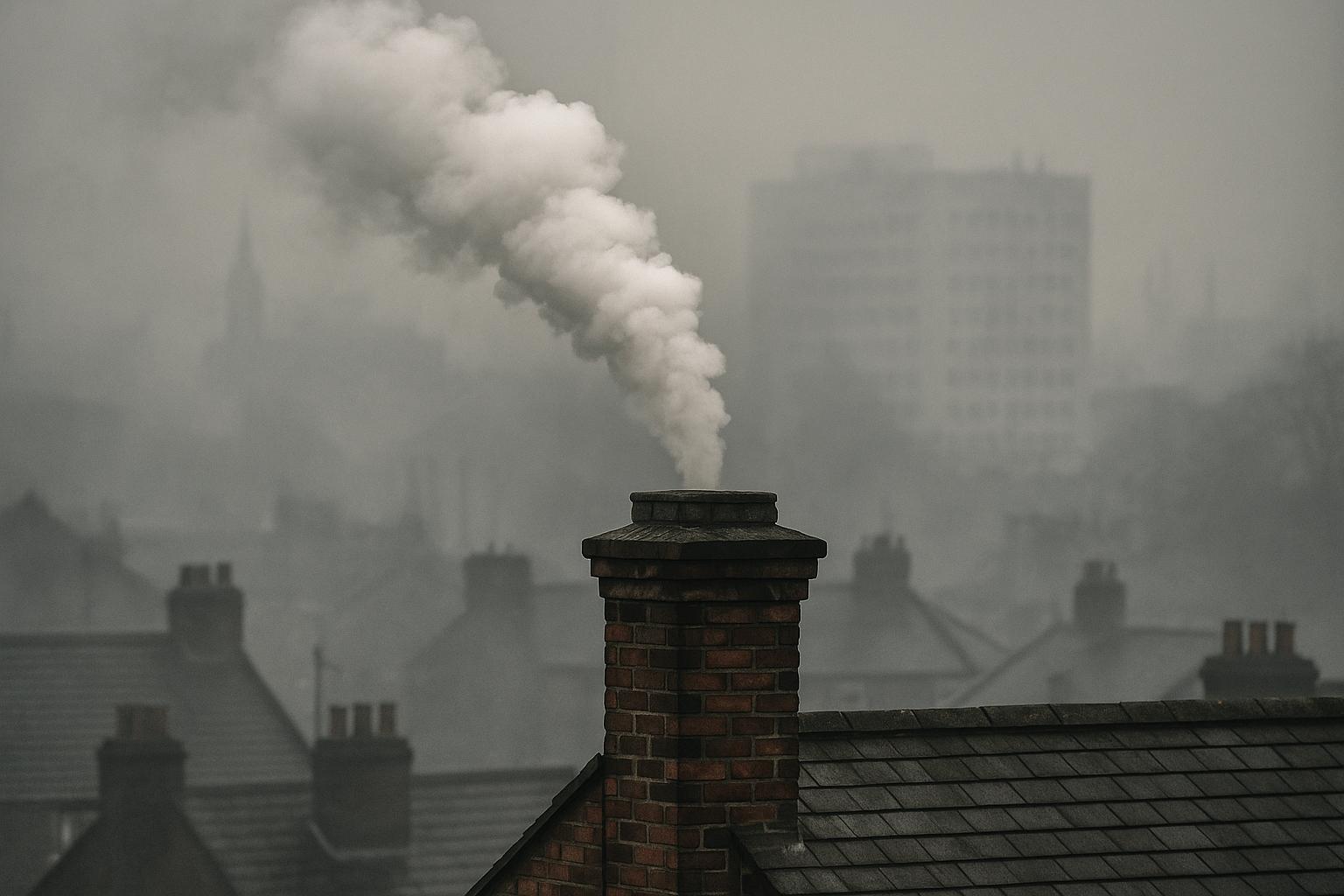Households in many major English cities face increasing financial penalties for using chimneys that emit smoke within designated Smoke Control Areas, according to recent guidance and government enforcement policies. The resurgence in popularity of wood-burning stoves, open fires, and fireplaces as a traditional means of home heating, driven partly by rising electricity costs, brings these issues sharply into focus. Despite their appeal, using unauthorised fuels can lead to fines of up to £1,000, while emitting any smoke from a chimney in Smoke Control Areas may result in fines reaching £300.
These Smoke Control Areas are legally designated zones, enforced by local councils in line with Defra regulations, designed to limit or entirely prohibit smoke emissions due to the significant health impacts of air pollution caused by burning fuels in domestic settings. This framework is critical in urban environments including almost all of London (except West Ham), Birmingham, Manchester, Sheffield, Leeds, Liverpool, and numerous other cities such as Bristol, Nottingham, and Coventry. The overarching objective is to improve air quality and protect public health by limiting particulate matter and other pollutants released from traditional solid fuels.
The government explicitly states that although open fires and wood-burning stoves remain popular, especially in winter, smoke generated by these appliances contributes to harmful air pollution affecting millions. To mitigate this, only fuels authorised by Defra can be used within these control areas, and those appliances must be either exempt stoves or rigorously tested models that demonstrate low smoke emissions when used according to manufacturer instructions. Failure to comply not only risks financial penalties but also may edge households closer to legal repercussions, as enforcement agencies ramp up inspections supported by updated policy measures.
Guidance from local councils and agencies like HETAS – the recognised body for solid fuel appliance installation and compliance – reinforces the need for households to ensure conforming use of approved fuels and properly maintained stoves. Enforcement includes warnings and fines related to breaches of the Clean Air Act 1993 and the Environment Act 2021, which brought updated standards to smoke control legislation. Local authorities receive comprehensive guidance on managing compliance and issuing sanctions where necessary, with appeal processes in place for disputes.
The heightened risk of fines and potential criminal records has attracted media attention, notably in areas with severe air pollution. As noted by recent reports, there is a government push to tighten emission limits for stoves further and improve local authority powers to monitor and enforce these regulations. This reflects broader environmental targets aimed at reducing urban air pollution and its health consequences.
In summary, while chimneys and wood-burning heating remain culturally and practically significant in many English homes, their use within Smoke Control Areas is subject to strict regulation. Householders must use authorised fuels and compliant appliances to avoid penalties ranging from £175 to £300 for smoke emissions, and up to £1,000 for burning unauthorised fuel. The establishment and enforcement of these rules underline the balance between traditional heating practices and the modern imperative of cleaner air.
📌 Reference Map:
- Paragraph 1 – [1] (Express), [2] (gov.uk)
- Paragraph 2 – [1] (Express), [2] (gov.uk)
- Paragraph 3 – [1] (Express), [2] (gov.uk), [6] (HETAS)
- Paragraph 4 – [5] (gov.uk), [6] (HETAS)
- Paragraph 5 – [7] (ITV), [1] (Express)
- Paragraph 6 – [1] (Express), [2] (gov.uk), [3] (City of London)
Source: Noah Wire Services
